Cluster Feeding – Reasons and Solutions

Cluster feeding, also known as bunch feeding, is when babies frequently feed at certain times of the day and go for long periods between each feed at other times. It is common among newborn babies and often occurs in the evenings. First-time mothers can be caught off guard by cluster feeds and think they may not be producing sufficient milk. It helps to know that cluster feeding is totally natural in most babies up to six months of age. If you are still doubtful about your breast milk supply, you should consult a doctor. Before that, we recommend reading this article to clarify most dilemmas and misconceptions around cluster feeding.
What Is Cluster Feeding?
By cluster feeding definition, we mean the term used to describe periods during a baby’s development when feeds are closely spaced together at certain times of the day. A cluster-feeding baby feeds at intervals of a few hours between each feed for most of the day and then suddenly shifts to a pattern of feeding continuously for hours, with each feed spaced closely together (1). A baby’s cluster feeding often occurs during evening hours and is common with younger babies.
Signs of Cluster Feeding
Since newborn babies have small tummies and grow at a fast pace, they nurse about eight to twelve times a day to keep up with their hunger and energy lost (2). Nevertheless, they don’t have a predictable feeding or sleeping schedule, so, identifying whether it is cluster feeding is not that difficult. Here are ways you can identify if your baby is cluster feeding:
- They are newborn – a few days or weeks old
- They feed in short sessions, frequently
- They show usual signs of hunger and start crying if they are not fed
- They seem content after feeding
- They continue to have wet and dirty diapers
Cluster feeding newborns typically nurse in the later afternoon or evenings, but are not restricted to any timeline. A newborn cluster feeding at night is can be exhausting for mothers; rest assured, it is just another phase babies go through.
When Can You Expect Cluster Feeding?
Cluster feeding can take place at any point in the life of an infant, and typically, the first instance occurs shortly after birth. These closely timed feeds stimulate the breasts to produce more milk to satisfy the baby’s growing appetite and need for nourishment. As they develop, they go through periods of growth spurts and cluster feed during each one. Typically, one can be expected around 10-12 days, and then again in three months and so on. Cluster feeding doesn’t last forever and usually ends by the time the baby reaches six months of age.
Is It Natural?
Cluster feeding can seem never-ending, and with your baby fussily feeding frequently, it’s easy to think that there may not be enough milk or that something might be wrong. The NHS states that cluster feeding is entirely normal, and most babies go through that phase in the early months (3).
Does It Mean That Your Baby Needs More Milk Than You Can Supply?
It is important to remember that cluster feeding does not reflect a low milk supply. It is a natural process by which the cluster feeding newborn prompts an increase in the milk supply by your breasts and should be allowed to happen. If you supplement breastmilk with formula, your body misses out on the cues that your baby needs more milk. This leads to your body not producing enough milk to sufficiently feed your growing baby, and that becomes a self-reinforcing loop, with you ending up having to continue supplementation. A good indicator that your baby is getting enough milk is plenty of wet and dirty nappies.
What Are the Causes of Cluster Feeding?
The exact cause of cluster feeding is uncertain, but health professionals speculate the purpose could be to ramp up the mother’s milk supply. Noteworthy speculated reasons are as follows (4) (5):
1. Growth Spurts
A growth spurt demands more nourishment as the baby’s body is working hard at growing rapidly. This means they would need all the necessary nutrients in higher quantities, which makes them feed more often.
2. Developmental Milestones
Babies go through a number of development milestones during the first six months of their lives. During these changes, their bodies require more nutrition, and feeding may also serve as a self-soothing method. Since it is comforting, babies may seek it more around these times.
3. Missed Feeding
If your little one skipped a feeding session due to reasons like sleeping, they might make up for it by cluster feeding.
4. Sleep Changes
If your baby is starting to sleep for longer duration at night, they might cluster feed in the evening beforehand to keep satiated at night.
5. Teething or Other Illness
Babies feeling any discomfort due to teething, fever, or any illness may also cluster feed for a while.
Benefits of Cluster Feeding
Sure, there are benefits of infant cluster feeding. Here are some:
- Increased Milk Supply – Cluster feeding boosts milk supply by the breasts. As the babies feed more, your body responds by producing more milk. Some moms also initiate cluster feeding as a way to increase milk production.
- Helps Baby Sleep Better – Although there is little evidence to suggest that it works, some mothers initiate cluster feeding to improve the baby’s sleep. This trick may work for some of the babies.
- Provide Them Wih Nourishment – Breast milk is loaded with antioxidants and immunity booster that help children develop and grow.
- Provide Comfort to the Baby – Breastfeeding soothes the baby and provides them comfort by staying close to their mother.
When Does Cluster Feeding End?
Cluster feeding often occurs in a bunch. That is, the baby feeds more frequently for a few hours in a day, normally during the evenings. A typical cluster feeding phase can last up to 48 hours and sometimes less.
How to Cope With Cluster Feeding
Here are a few ways to cope when you have an infant cluster feeding (5):
1. Eat Well and Stay Hydrated
To produce the milk needed to keep up with your baby’s demands, your body needs plenty of fuel. So make small, regular meals a priority and drink lots of water. Some nutritional snacks such as hummus and whole-wheat crackers, almonds, apple with peanut butter, etc., can save you from exhaustion.
2. Take a Nap When You Can
Feeding your baby for hours on end, especially at night is exhausting, and skipping sleep can only make it worse. So while it may be tempting to engage in other things in the little time you get when your baby is sleeping, it is better to use that opportunity to get some shut-eye.
3. Accept the Situation
Try soothing your baby by other methods, such as holding them or walking with them outside. However, if the change in feeding has come about abruptly, it’s most likely a cluster feeding episode. Do not fight the feedings, and it’s best to feed them as much as they need.
4. Get Comfortable
When you have a cluster feeding newborn who feeds for long hours, you will most often be stuck in a place for a while. So plan ahead and have all your magazines, books, remotes, phones, or tablets at arm’s length to keep yourself entertained.
5. Join a Support Group
Talking to other moms about your feelings and frustrations can help your feelings of loneliness. Discussing helpful tips and techniques is a valuable support during times of fussy feedings.
6. Don’t Take It Personally
An endlessly fussy baby on a cluster feeding episode can make you feel inadequate about yourself. So don’t beat yourself up. Understand that it’s totally natural, and it doesn’t mean that you’re doing anything wrong.
7. Get Some Help
Be it your mom or a close friend who you’re comfortable with, a breastfeeding partner can save you some effort. Any willing volunteer who can spend time with you by having entertaining conversations, getting you snacks or drinks or helping with housework and errands can be a blessing.
8. Wear Your Baby
If your baby’s cluster feeding episode is making it difficult to stay away or relax, then wear your baby. Buy a sling or a baby carrier so you can wear them around the house. This helps in letting them feed when they want while you get other things done.
When to Consult a Doctor
While bunch feeding is normal, there are times when it is a good idea to see your doctor. If the baby feeds for more than an hour at a time or if the cluster feed lasts for more than two days, consult the doctor. It could be a sign that your milk production is not keeping up with what the baby needs.
FAQs
1. When does cluster feeding start?
It is observed that cluster feeding typcilly happens during growth spurts in babies, which is usually right after birth, at about two weeks of age, and one month of age. Cluster feeding can also be seen happening during later growth spurts, around 6 weeks, 3 months, and 6 months.
2. How long does cluster feeding last?
Infant cluster feedings associated with growth spurts last for only a couple of days.
3. Do babies on formula cluster feed?
Yes, although formual-fed babies cluster feed comparatively less than breastfeeding babies. One reason is that breast milk is digested faster than formula.
4. Can cluster feeding cause overfeeding in babies?
Don’t worry; cluster feeding at the breast does not overfeed an infant. Since newborn’s tummies are quite small, anything extra or undigestable is spit up.
Although it can be exhausting, cluster feeding is completely normal and temporary. You can also try to accept and enjoy the long hours of snuggling with your baby while the phase lasts.
References/Resources:
1. Cluster feeding; Pregnancy Bith & Baby; https://www.pregnancybirthbaby.org.au/cluster-feeding
2. How Often To Breastfeed; American Academy of Pediatrics; https://www.healthychildren.org/English/ages-stages/baby/breastfeeding/Pages/How-Often-to-Breastfeed.aspx
3. Cluster feeding; NHS; https://www.nhs.uk/start-for-life/baby/feeding-your-baby/bottle-feeding/bottle-feeding-your-baby/cluster-feeding/
4. Cluster feeding; HSE; https://www2.hse.ie/babies-children/breastfeeding/common-challenges/cluster-feeding/
5. Cluster feeding; American Breastfeedng Association; https://www.breastfeeding.asn.au/resources/cluster-feeding
Also Read:
Dream Feeding a Baby
Bottle Feeding Advantages and Disadvantages
Cup Feeding Your Baby: Benefits and Drawbacks
Age Wise Guide to Feeding Your Baby – 0 to 12 Months
Was This Article Helpful?
Parenting is a huge responsibility, for you as a caregiver, but also for us as a parenting content platform. We understand that and take our responsibility of creating credible content seriously. FirstCry Parenting articles are written and published only after extensive research using factually sound references to deliver quality content that is accurate, validated by experts, and completely reliable. To understand how we go about creating content that is credible, read our editorial policy here.








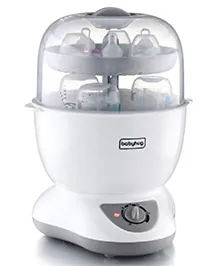
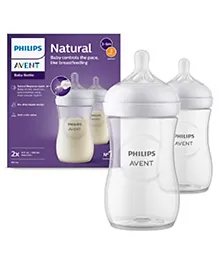
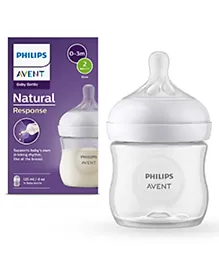
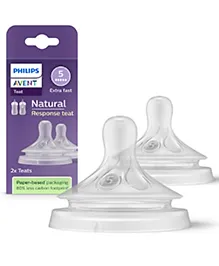


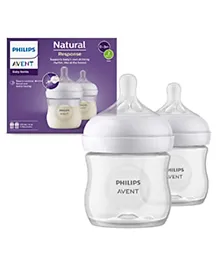
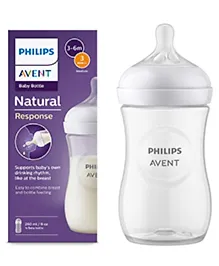








.svg)


















